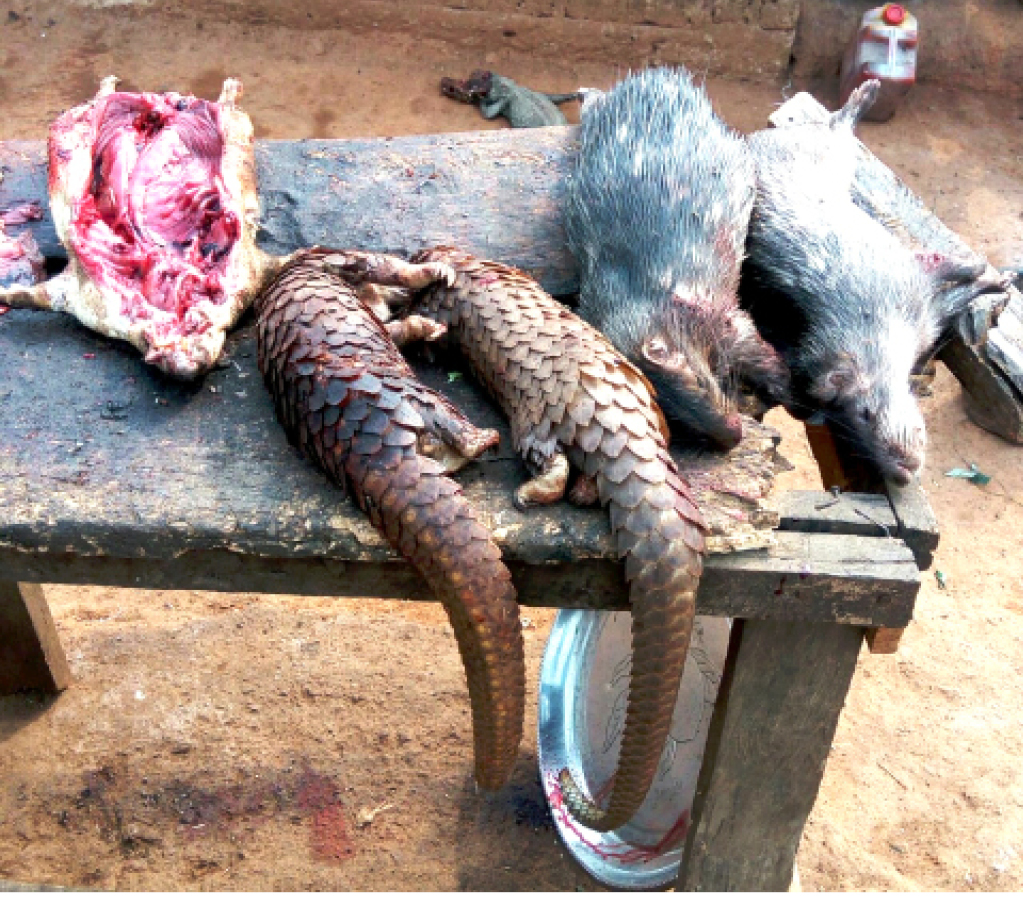The Cross River gorilla, forest elephant, Nigeria-Cameroon chimpanzees and some other fauna and flora are on the verge of going extinct as a result of human exploitation of the Cross River forests which stretch across the Nigerian border into Cameroon.
The human activities in and around these forests—poaching, trafficking, lumbering and mining—constitute crimes against the environment as most of the forests are protected areas.
But there are concerted efforts by stakeholders to save the endangered species to preserve the biodiversity in the region which is critical to combating the prevailing climate change crisis.
The Country Director, Nigeria Programme, Wildlife Conservation Society (WCS), Mr Andrew Dunn, recently revealed that a Transboundary World Heritage Site will be established in the region as part of efforts to protect the endangered flora and fauna.
He said consultations have been completed with all Cross River National Park (CRNP) support communities in that regard.
He said, “The rainforests of Cross River State form part of an internationally recognized biodiversity hot spot and an important centre of plant diversity with very high levels of species richness and endemism.”
The CRNP, established in 1991, he said, “is the richest and most diverse national park in Nigeria, and in 2014 was identified as one of the priority ‘Key Landscapes for Conservation’ in Africa by the European Union (EU).
“It is home to a wide variety of endangered species including the Cross River gorilla, forest elephant, Nigeria-Cameroon chimpanzee and drill. The national park is also a critical watershed for Cross River State and has significant potential for tourism”.
Site will strengthen trans-border cooperation
Also speaking on illegal wildlife trade taking place around the area, the Director of Cross River Landscape for WCS, Dr Inaoyom Imong, at a workshop, said they recently held a one-day workshop for NESREA, Nigeria Customs Service personnel and other stakeholders in Calabar to update them with the international dimensions which the trade has assumed, including methodologies to tackle them.
He said the two presidents of Nigeria and Cameroon will soon sign a Memorandum of Understanding (MOU) to create the transboundary heritage site to contain wildlife trafficking and other crimes against the environment in the region.
He disclosed that the heritage site will strengthen cooperation between the two countries, adding that it will enable them to achieve joint conservation goals.
“The World Heritage Site will strengthen transboundary efforts between Nigeria and Cameroon. Transboundary cooperation will make conservation more effective and reduce costs.
“When the MoU is signed by the two presidents very soon, it will bring about many more benefits, including joint patrols and regular transboundary workshops between them.”
Imong also called for greater management and strengthening of laws to enforce the protected areas so as to discourage incessant infiltration into forests as well as attacks on the wildlife there.
He advocated for support for the prosecution of violators as well as creation of code of conduct for forest rangers.
“Forest rangers need regular training, field rations and allowances, including field equipment and infrastructure such as culverts and access roads.”
According to him, they are now providing livelihood support to local communities in the forest areas to stem widespread poverty, and also dissuade them from invading protected areas for foods.
He appealed to forest communities that suffer devastation of their farmlands not to kill the animals which stray into them.
He said the elephants and gorillas, for instance, were facing extinction going by their few numbers and would not be happy to see these animals killed as they are under protection.
Imong said their efforts for gorillas and elephants to reproduce themselves were yielding sure signs as their populations are stepping up.
He said it is the government that ought to ensure that the National Parks in the state which are gazetted as protected areas are held as such.
“But we find that human activities like traversing these territories for economic trees and fruits, such as bush mangoes, Afang leaves, cocoa, have left these places porous, for which reasons the animals stray out.”
To minimise incessant infiltration into the National Parks, he said, the WCS is providing alternative economic means, training, empowerment for forest communities, and support for beekeeping and livestock as ways to dissuade them from living on forest resources.
Imong also disclosed that they are interfacing with stakeholders to reduce the wanton illegal logging in the state.
He pointed out that conservation requires communities to have a change of behaviour and attitude towards nature.
Site will attract international funding
Also, experts believe that the transboundary heritage site, will also attract international support and funding to stem wildlife trafficking and entrench conservation in the face of the evidential climate crisis.
They said without this critical funding, biodiversity loss in the midst of this historic climate crisis will only worsen, stressing that must not be allowed to happen.
Wilson Ndem, a wildlife expert advocated stronger government involvement due to the fragility of the Cross River ecosystems. This way, it would preserve biodiversity and mitigate the effects of the changing climate.
He advised that there should be programmes to stop international wildlife trafficking, which is acclaimed to be one of the largest transnational criminal enterprises in the world.
He emphasized that vulnerable species in the wild must be conserved and that landscapes and seascapes should also be protected as the last remaining wild places.
“This will serve as natural carbon sinks, provide security and livelihoods to local and indigenous peoples who directly depend on natural resources for their survival and economic growth and ensure wildlife zoonotic disease surveillance to prevent the emergence of viruses.”
According to him, “International conservation is closely tied to national security: illegal exploitation of natural resources have been linked to large-scale transnational criminal activities, fostering corruption, undermining the rule of law, and robbing developing countries of natural wealth and economic opportunities. The impacts are far-reaching.”
Stiffer penalties for traffickers
The Federal Government of Nigeria has been urged to make wildlife hunting and trafficking unattractive and part of efforts to curtail illegal wildlife crime.
The counter wildlife trafficking advisor at WCS, Elisha Bello, at a recent capacity building workshop on combating Illegal Wildlife Trafficking and Trade, organized for staff of the National Environmental Standard Regulatory Agency of Nigeria (NESRA) in Calabar, called for stiffer legislative penalties against trafficking and much more.
Bello said the risk and penalties for drug trafficking are high, and the reward also high but that in wildlife trafficking, the risk is low because of the weaker laws in place.
The Coordinator of NESRA, Mr Adamu Ibrahim, said much was expected in order to safeguard the country’s wildlife species.
“We want to ensure the conservation of our biodiversity. We have a duty to protect our wildlife so that they don’t go into extinction,” he stated.

 Join Daily Trust WhatsApp Community For Quick Access To News and Happenings Around You.
Join Daily Trust WhatsApp Community For Quick Access To News and Happenings Around You.
